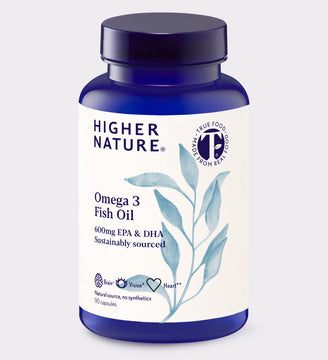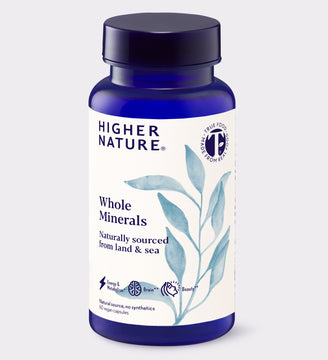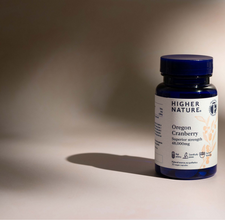
B is for Brilliant
Higher Nature Nutrition Team
Often referred to as a collective, B vitamins can be a little bit neglected in favour of some of the other higher profile vitamins such as C and D. You might know that they are crucial for energy production in the body, but did you know that they play a role in making sure your brain chemistry is tip top? Take a bit a deep dive into their roles in the body and you soon begin to see just how vital they are to our health, both physically and mentally.
Skin and hair
Several of the B vitamins are involved in keeping your skin and hair looking healthy, and if you don’t get enough of them in your diet, you might soon notice it. Take B2, this is needed for making glutathione, the main antioxidant that the body produces to protect cells from damaging free radicals, which prematurely age skin if left unchecked. A lack of biotin too can show as scaly patches on the skin or hair loss, whilst B3 deficiency can cause the skin to be rough and sun-sensitive.
Eyes
B2 is essential to eye health, where just like its role in protection of the skin, it is also needed to protect the lens in the eyes from free-radical damage, which is thought to play a role in the development of cataracts and age-related macular degeneration or AMD.
Brain – mood and memory
Numerous B vitamins are needed for various aspects of brain health, from synthesizing neurotransmitters to making sure homocysteine levels are kept in healthy range.
B6 for example is needed for making neurotransmitters including feel-good serotonin, motivating dopamine and chill-out GABA, whilst B5 or pantothenic acid is required for making acetylcholine, the neurotransmitter involved in memory and learning.
B6, folic acid and B12 are vital for ensuring homocysteine levels are kept in check. Higher homocysteine levels are implicated in Alzheimer’s disease
Heart
The homocysteine lowering B vitamins, B6, B12 and folic acid take on roles in the cardiovascular system too, lowering homocysteine preventing it from causing damage, or build-up of plaque in blood vessels. Vitamin B1 is also required for healthy heart function.
Hormones
B6 is well-known to be vital for female health. It is needed for making steroid hormones in the body which then go on to be made into progesterone and oestrogen. Far from being just a female B vitamin, men also need B6 to make testosterone.
Immunity
When it comes to immunity we most often think of vitamin C and zinc but several of the B vitamins are required for our immune function. B6 for example is needed for making the all-important antibodies which your immune system produces in response to viral infection, so that next time your system encounters the same virus it is immune to its effects, immune memory if you like.
Nervous system
B5 is needed for the nervous system to ensure the body can make myelin sheaths which surround, protect and insulate each nerve, whilst B1 has a function in nerve conduction.
To B or not to B?
Eating a healthy diet which includes wholegrains, leafy green veg, eggs, nuts, seeds, pulses, dairy, fish, poultry and lean meat will stand you in good stead as far as the B vitamins go but supplementing with a high strength B complex can be a great way to make sure you are not running short.
This is especially key if you feel your energy is less than optimal and you are experiencing tiredness and fatigue. It’s great too if you lead a hectic lifestyle as stress is known to deplete B vitamins, and rather like a vicious cycle, if you are low, you are more likely to experience anxiety or stress.
Not all B’s are created equal
If you feel you might benefit from taking some B vitamins it is always wise to take a complex rather than individual vitamins as they do work in synergy with each other. It’s also worth seeking out one which offers not just good levels, but also optimal forms to provide you with the best support. This can be especially true of folic acid, B12 and B6.
Folic acid is fine to take just as it is, and actually is often more well absorbed than that in food which can be harder to access, but if you have MTHFR genetic polymorphism (and many of us unknowingly do) your body does not so readily convert it into its active form, methyltetrafolate. By choosing a supplement which contains some methyltetrafolate you can cover all bases and ensure you are not unwittingly missing out.
Similarly products which include active forms that the body can use straight away without the need for conversion may also be beneficial. Methylcobalamin and pyridoxal-5-phosphate, the active forms of B12 and B6 respectively are ideal.
So whilst the B vitamins will always be a perfect way to restore your get up and go, don’t forget the multitude of other equally vital but perhaps more hidden jobs they are doing to keep you in rude health.


















